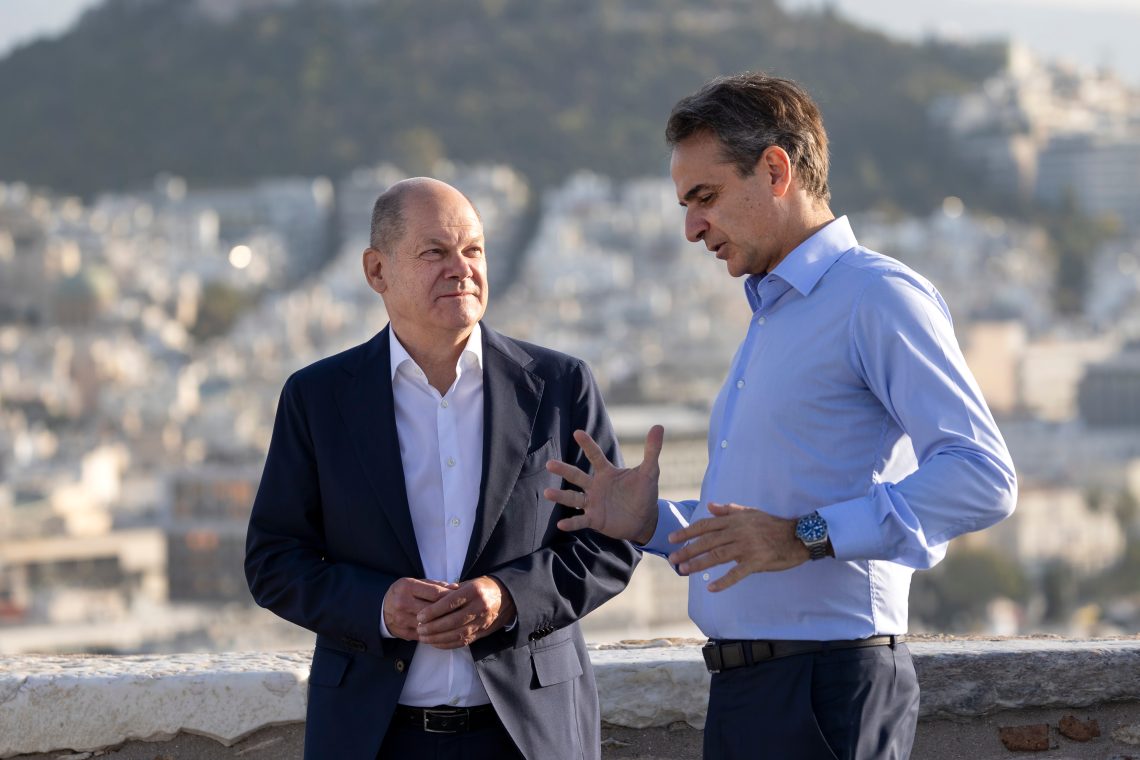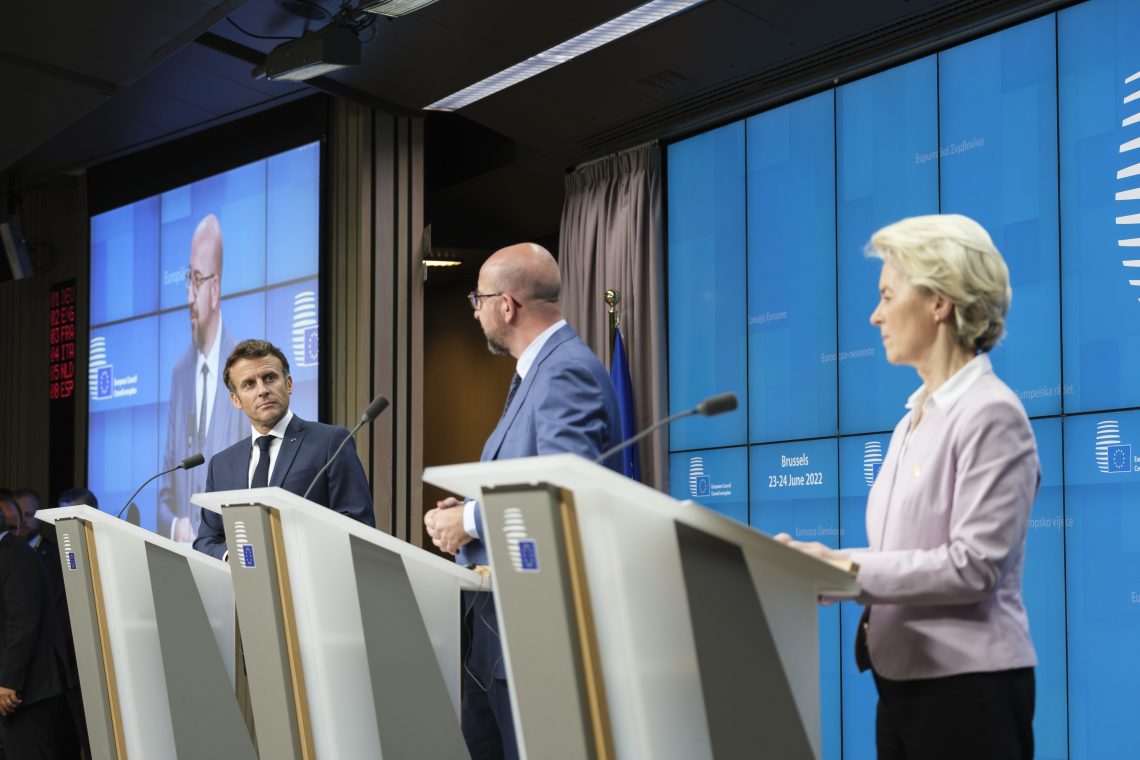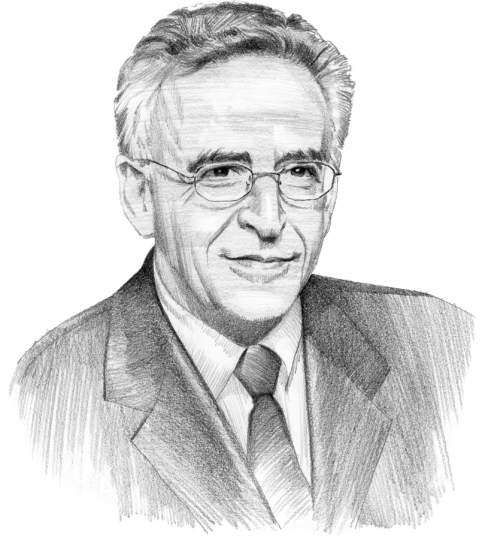New approaches to EU governance and enlargement
The existing models of EU governance and enlargement will need to be adjusted to reflect a new geopolitical reality in Europe.

In a nutshell
- Many European leaders are calling for EU reforms
- Energy and security issues will likely hinder the process
- New ways to broaden and deepen cooperation could emerge
The European Union’s recognition of Ukraine and Moldova as candidates for membership led to calls for strengthening European institutions in readiness for future enlargement. But the EU’s offer to Ukraine was mainly a wartime gesture of solidarity with Kyiv and a signal to Moscow that Brussels considers Ukraine’s sovereignty crucial to European security and stability.
EU leaders have little hope of transforming the political systems of current candidates in the near future so they are ready for membership. Despite limited progress, these countries remain mired in state capture and other shortcomings. Streamlining the EU to prepare for enlargement, therefore, is not an immediate priority – especially with inflation, energy security and military support for Ukraine high on the agenda. Alternative scenarios are needed to map out the EU’s likely future development.
Governance changes ahead of enlargement
German Chancellor Olaf Scholz commented that the EU could not function with 36 members shortly after he and his fellow EU government chiefs proposed creating just such a Union, with the offer of eventual membership to Ukraine, Moldova and Georgia, in addition to current Balkan applicants. The EU needs to prepare for further expansion, Mr. Scholz argues, by phasing out national veto rights and allowing for more decisions by majority vote. This would deprive Hungarian Prime Minister Viktor Orban and other euroskeptic leaders of the ability to derail sanctions, foreign policy or financial decisions.
The war in Ukraine, inflation, energy security and climate change have put governance issues on the back burner, despite calls for institutional reform.
French President Emmanuel Macron, a long-standing proponent of EU institutional reform, endorses this stand. He sponsored a year-long Conference on the Future of Europe to distill public demands for changes in how the EU operates. These cover over 300 policy areas and 49 proposals. Their main implication is that EU institutions must be streamlined before further enlargement. The EU’s other founding members Belgium, Luxembourg, the Netherlands and Italy, as well as Spain, support calls for change. Italy’s new right-wing government is likely to maintain this position, albeit with its own conservative goals in mind.
The Commission and the European Parliament want a new constitutional convention to restructure EU institutions and give the EU more powers in foreign policy, defense, energy, climate, public health and other areas. The European Parliament has called for “Treaty changes, inter alia, concerning the simplification of the EU institutional architecture, more transparency and accountability in the decision-making process.” The present 751-member chamber will be unworkable if it continues to expand whenever a new member joins the EU. The Commission, too, has become unwieldy and national vetoes in the Council of Ministers hinder decision-making.
Appeals for treaty changes to reinforce the EU ahead of expansion reflect a deeply held federalist view that “widening” must be accompanied by “deepening.” This was evoked ahead of each previous EU expansion and, in easier geopolitical circumstances, did indeed lead to five major adaptations of the EU treaties. However, the inherent tensions between effective governance and enlargement have afflicted the EU for decades.
Growing resistance
The war in Ukraine, inflation, energy security and climate change have put governance issues on the back burner, despite calls for institutional reform. They were scarcely mentioned in the Commission President’s “state of the union” address in September. Earlier, Sweden and 12 other member states issued a “non-paper” opposing treaty change. They pointed out that this was scarcely a priority in wartime.
Smaller EU members dislike decisions being precooked in Berlin and Paris and cling to the veto to protect national interests. Soundings by the Czech rotating EU Presidency in September showed that there is considerable resistance to treaty change. Ireland’s European affairs minister warned that the public would not be sympathetic if the EU became sidetracked into procedural debates about voting rules while people are unable to pay their energy bills.
Innovation without treaty change
The EU has at times responded to new challenges by innovating within existing legal structures. It reacted to Covid-19 with initiatives that broke taboos in procuring vaccines, raising and spending recovery funds, imposing budgetary priorities (especially “the green transition”) on members, backing up national unemployment schemes, and approving exceptions to eurozone macro-financial rules and to border-free travel among Schengen countries.
Russia’s attack on Ukraine led the EU to invoke the new European Peace Facility, which, by July, had financed 2.5 billion euros in military technology and equipment for Ukraine. This was a first for the EU, which had previously refused to fund armaments. In September 2022, the Commission proposed a far-reaching eighth package of sanctions against Russia. In another first, it advocates an energy price cap to deny Russia and international energy companies excessive windfall profits, after an earlier agreement to reduce energy demand voluntarily by 15 percent. The EU is moving toward collective gas procurement, inspired by joint vaccine purchases during the Covid emergency.

These are seen in Brussels as steps toward a fundamental reform of European energy markets. But it is proving difficult to reach a consensus on energy price caps with some governments implementing national schemes to protect their own people. Berlin, in particular, has angered other governments by adopting a purely national 200 billion-euro package to shield citizens from soaring energy prices. Not all governments have the fiscal space for such a scheme, and they are concerned that it will distort competition. Many prefer targeted schemes to help those most affected by energy and food price hikes. Makeshift policy innovations, as distinct from underlying treaty changes, indicate resilience but have their limitations.
More majority voting?
The Commission has proposed extending qualified majority voting (“QMV”) to certain decisions concerning foreign policy and sanctions. At present, QMV is used for most internal EU decisions and to implement measures but not for major foreign policy decisions or the budget. QMV requires 55 percent of member states (in practice 15 out of 27), representing 65 percent of the EU’s population, to approve a decision in the Council of Ministers. A minimum of four countries, representing at least 35 percent of the EU’s population, is required to form a “blocking minority.”
Under existing rules, nothing prevents member countries from deciding to make greater use of “QMV” if they can find the collective political will. Bridging clauses allow governments to decide (unanimously) to use majority voting in a particular policy area.
With such built-in flexibility, EU leaders may wish to avoid the upheaval of treaty change at this precarious juncture.
A high-risk strategy
Convening a constitutional convention, as proposed by the Commission and Parliament, with the backing of Berlin and Paris, would be a high-risk strategy. It would provide opportunities for euroskeptic leaders to make demands that would weaken the EU by transferring powers to the national level. They would try to claw back powers from the EU in areas like the rule of law, migration and human rights.
Membership for semi-reformed countries at war or under partial occupation, like Ukraine, Moldova and Georgia, is problematic.
Divisive issues, such as EU-wide voting lists and the selection of top EU leaders by popular vote, would again sow discord. Treaty amendments would require referendums in some countries. In practice, these would be fought on domestic issues and, based on past experience, several countries would probably reject proposed changes – creating an EU constitutional crisis. In the present climate, this could not be overcome by sidestepping the views of the electorate, as in the past. Is it worth the fuss given that no enlargement is likely to occur in the foreseeable future, despite promises made in the heat of war?
Podcast
No widening on the horizon
Some proposed governance changes arise from the wish to update the 2009 Lisbon Treaty, the EU’s de facto constitution, separately from enlargement. This treaty was adopted before issues like climate, energy security, digitization and defense had acquired their current prominence. But the main impetus for treaty change comes from the worry, expressed by Chancellor Scholz, that a 36-member EU would be ungovernable. However, the EU’s offer of eventual membership to Ukraine, Moldova and Georgia – and its apparent willingness to move ahead with problematic Balkan applications, most recently Bosnia and Herzegovina – spring mainly from the desire to respond geopolitically to Russian President Vladimir Putin’s depredations in eastern Europe.
The fine print of the EU’s offer of future membership requires aspirants to first put their own houses in order. State capture remains widespread, with little prospect of current candidates becoming fully functioning democracies and market economies in the foreseeable future. In 2021, Ukraine ranked 121 out of 180 countries in Transparency International’s perception of corruption index, and 23 percent of polled public service users there reported that they had paid a bribe in the previous 12 months. In 2021, Serbia, the pivotal Balkan candidate, ranked 96 out of 180 countries in the perception of corruption index, with 15 percent of public service users reporting that they had paid bribes in the past year.
Membership for semi-reformed countries at war or under partial occupation, like Ukraine, Moldova and Georgia, is problematic. Balkan candidates, despite recent advances in their applications, still have to overcome state capture, human rights failings, conflicts with neighbors and reluctance among EU members.
An alternative to widening and deepening?
The EU needs to find means other than the historic duo of widening and deepening to reinforce the stability and security of Europe. President Macron has suggested that this could be achieved by a European Political Community (EPC) to embrace most European countries. An initial summit meeting took place in Prague in early October. But candidate countries are wary as they fear, not without reason, that if successful it could become an alternative to eventual membership. To attract EU candidates, the EPC needs to set out practical means for Ukraine, Serbia and others to participate in functional areas of EU policy, like energy and transport, while maintaining that this will facilitate eventual EU membership.
Under any circumstances, Europe’s leaders will need to move away from the mechanical application of a widening and deepening model drawn from the 1990s and 2000s.
The near-universal European membership proposed for the EPC, compromising 44 countries, makes this challenging. It includes several authoritarian states as well as the United Kingdom – countries not destined for EU membership, but which are eager to distract attention from domestic woes and to mend frayed relations with Brussels. The UK has offered to convene a future EPC meeting, albeit under a name with less European resonance.
A highly differentiated pattern of participation as well as tangible benefits in areas like energy, transport and reconstruction assistance will be required to bolster the initiative’s credibility.
Scenarios
Widening and deepening
The traditional route outlined by Chancellor Scholz, President Macron, the European Commission and Parliament is a convention to streamline the EU’s institutions ahead of future enlargement. In parallel, Ukraine, Serbia and other candidates would need to make convincing progress in addressing their shortcomings. EU leaders would have to overcome domestic reluctance by demonstrating how expansion favors national interests. But instability in Europe, aggravated by Russia’s invasion of Ukraine, inflation and energy insecurity, make widening and deepening the EU in the years ahead improbable. Nonetheless, the EU will remain rhetorically committed to this process while engaging in piecemeal innovations when required to do so by increasingly frequent crises.
Pan-European cooperation
A second scenario sees widening and deepening postponed, while the EU tries to contain multiple crises. Against this unstable background, the European Political Community, or a similar initiative, creates opportunities for partner countries to become part of significant EU projects bringing tangible benefits. To achieve continent-wide participation, the EPC must interpret “shared values” as a credible aspiration rather than as a precondition for participation. The narrative that such an initiative will prepare candidate countries for eventual EU membership, after the EU has reformed its institutions, will gradually fade. A flexible pan-European structure – asserting the existence of a kind of European sphere of influence and rejecting Russian expansionism – is attractive to many governments.
Contiguous circles
A third scenario departs more radically from the widening and deepening narrative. It recognizes that significant treaty changes to prepare for enlargement or multilateral cooperation, such as the proposed EPC, are unlikely to flourish in a continent facing war, inflation, recession and supply shortages. This scenario sees the EU focusing on its geopolitical interest in resisting aggression, instability to its east and south and resource scarcity. Security cooperation, especially on cyber, seabed and other hybrid threats, and coordination with NATO, as well as energy security, remain at the top of the agenda. The emerging pattern of cooperation is project-based, more akin to “contiguous circles” than the traditional notion of “concentric circles,” with Brussels at the center.
The outcome is likely to reflect elements of all three scenarios. But, under any circumstances, Europe’s leaders will need to move away from the mechanical application of a widening and deepening model drawn from the 1990s and 2000s.








